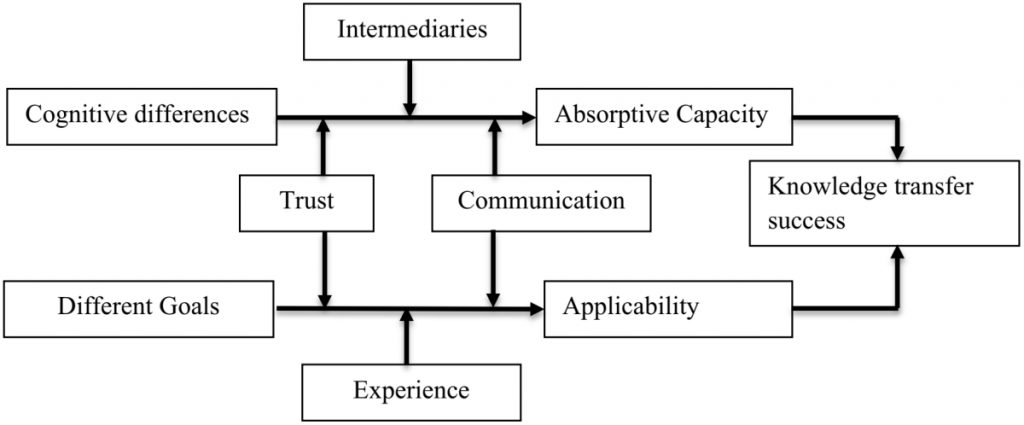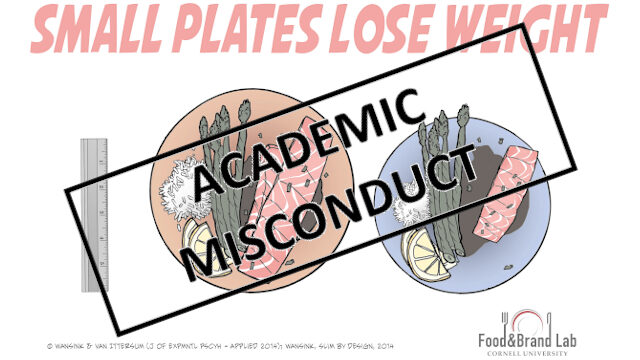
Practices that can facilitate knowledge transfer in university–industry research partnerships
Effective knowledge transfer between universities and industry advantages both parties. Industry benefits because interaction with researchers makes the commercialization of new scientific knowledge easier. Researchers benefit because interactions with industry can inspire new research directions and provide access to additional funding.
To identify the barriers to, and facilitators of, effective knowledge transfer between universities and industry, a group of researchers from the University of Groningen in The Netherlands and Loughborough University in the United Kingdom carried out a systematic review1 of the academic literature. The review examined the literature from the point of view of academic engagement with industry.
The researchers first conducted a search of the Emerald, Web of Knowledge, and Business Source Premier academic databases using broad Boolean search strings. From these results, they selected papers that could help answer the following research questions:
- What is known about knowledge transfer in academic engagement according to the extant literature?
- How can failure and success of knowledge transfer be explained?
- What practices facilitate the transfer of knowledge in academic engagement?
After the application of the inclusion and exclusion criteria, 35 papers were identified that discussed relevant insights into knowledge transfer. The next step was to analyse the selected papers.
Factors influencing knowledge transfer
The factors influencing knowledge transfer can be described under three themes: cognitive differences, institutional factors, and social capital:
- The factors relating to cognitive differences are ambiguity and absorptive capacity. They relate to differences in knowledge background between the firm and the academics. Knowledge ambiguity refers to a situation where dissimilarities in knowledge result in inherent and irreducible uncertainty regarding what the underlying knowledge components and sources are precisely, and how they interact. Absorptive capacity refers to the ability to recognize, assimilate and apply new external knowledge.
- Institutional factors are cultural differences and shared goals. The term cultural differences is used to indicate a lack of shared meaning and social conventions. Different goals relate to the different ways in which business and academia benefit from knowledge.
- Social capital in the form of tie strength and trust reflects the closeness of a relationship and positively influences knowledge transfer.
All of these factors are interrelated.
Practices that can improve knowledge transfer
Cognitive differences
- Communication is an important facilitator to improve absorptive capacity. The channels for communication during engagement are diverse and differ in their ability to transfer tacit knowledge and to deal with differences in knowledge backgrounds.
- Knowledge transfer through rich, or interactive, media is preferred over indirect communication through reports, presentations, patents and so forth, as the latter are unable to transfer tacit knowledge
- Three practices are important for rich communication practices: boundary spanners, training, and the use of tools or objects.
- Boundary spanners are effective because they facilitate the knowledge conversion and translation of academics results to the context of the firm and vice versa. They are often personnel that is exchanged between academia and industry during the course of the collaboration.
- Training and workshops help to transfer tacit, complex knowledge and build skills. They provide a space for deliberation and feedback which increases the comprehension of results.
- The use of prototypes and working in the facilities of the industrial partner helps to integrate knowledge and learn about implementation challenges.
Institutional differences
- Differences in goals originate from differences in market orientation, priorities in norms, and different logics for the sharing of knowledge.
- Differences in goals are best managed by improved communication.
- Goals and outcomes should be established early in the project. The use of project plans that outline goals and outcomes could facilitate this. Project management tools can be helpful in the communication of progress and the relation between goals and outcomes.
- Researchers need to put sufficient effort into understanding the needs of the industrial partner; this becomes especially important during the engagement phase. Expectation management about what can be achieved in the available time and when results can be expected is also important to keep industrial partners satisfied.
- Frequent meetings and deliberation are key to recognize and solve differences.
- Experience with the collaboration partner has been found to mitigate problems relating to differences in goals, because it leads to more realistic expectations and better insight in the partner’s needs.
- Cultural differences that are referred to as institutional norms or organizational routines relate to differences in project management and time orientation. The industrial partner’s aversion to long term orientation of academics and the fundamental nature of research can be managed by open communication and good project management.
- Cultural differences relating to the application of knowledge and willingness to share knowledge relates to the academic habit to publish results, while industrial partners rather keep knowledge secret. These differences can be handled through publication management and upfront arrangement of IP (intellectual property) rights, but arranging IP too early in the collaboration might negatively influence trust between partners.
Social capital
- Trust has been shown to influence knowledge transfer in research partnerships, mostly because it reduces fear of opportunistic behaviour, resulting in increased willingness to share information.
- Trust increases with frequent communication. Therefore, tie strength improves trust.
- One thing influencing trust is that industrial partners fear that the academic partner is not working on the same goals, due to institutional differences, and that academics use the industrial partner as cash cow. Fear for a lack of common interests is reduced by building social capital, which includes tie-strength, and collaboration experience with the particular partner.
- Another thing influencing trust is a fear that academic partners unintentionally share sensitive knowledge with other companies, due to a lack of experience with handling sensitive knowledge. This can be prevented by providing secrecy training and using a split management strategy, meaning that academics who work for different companies should not be mixed in research projects.
- Academic reputation and previous personal ties are important drivers for establishing collaboration.
- It is recommended to start with small projects, like student projects, and build to more complex collaborations and more fundamental questions from there. This way, managerial capabilities can be developed and academic work can be aligned with business challenges.
- Trust results in less formal contractual agreements and the absence of formal control mechanisms. Coordination is often effected informally between project managers from both sides. This can lead to confusion when university partners have several senior researchers, and it is unclear who is in control. Appointing a single person from both organizations as a liaison is therefore recommended.
- Trust influences the formalization of communication. Regular contact during the collaboration is important to ensure that goals remain aligned.
- Although partners expect to be informed, reports play a minor role in this. Preferably, results are discussed in informal settings and regular progress meetings, or informally by email (discussions) and telephone.
Knowledge transfer model
From their findings, the researchers have developed the model in Figure 1, which shows how different characteristics of knowledge transfer relate in the context of academic engagement.

Article source: Knowledge transfer in university–industry research partnerships: a review is published under CC BY 4.0.
Reference:
- de Wit-de Vries, E., Dolfsma, W. A., van der Windt, H. J., & Gerkema, M. P. (2018). Knowledge transfer in university–industry research partnerships: a review. The Journal of Technology Transfer, 1-20. ↩
Also published on Medium.






